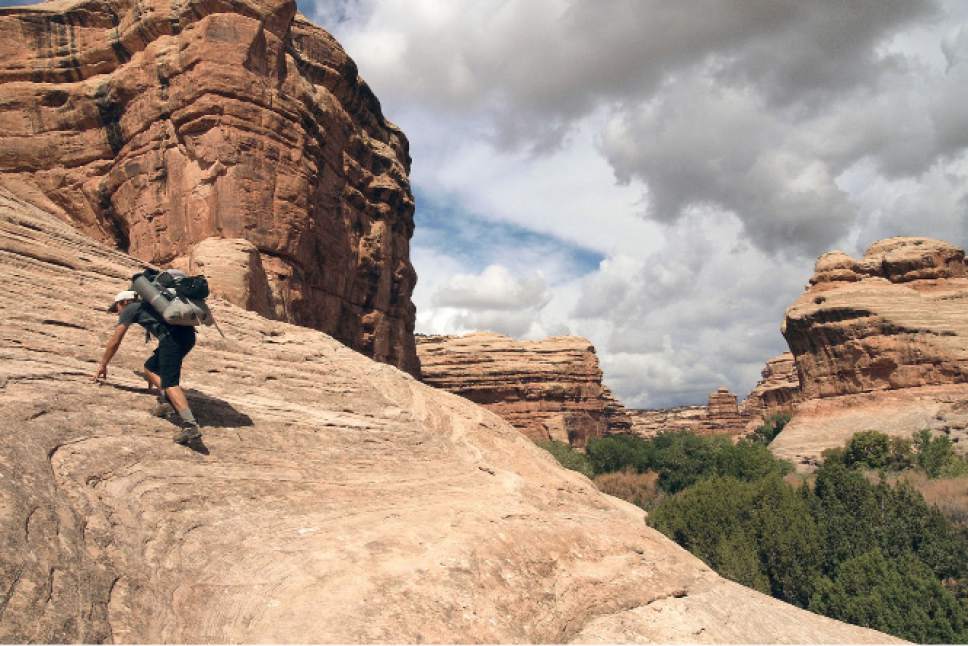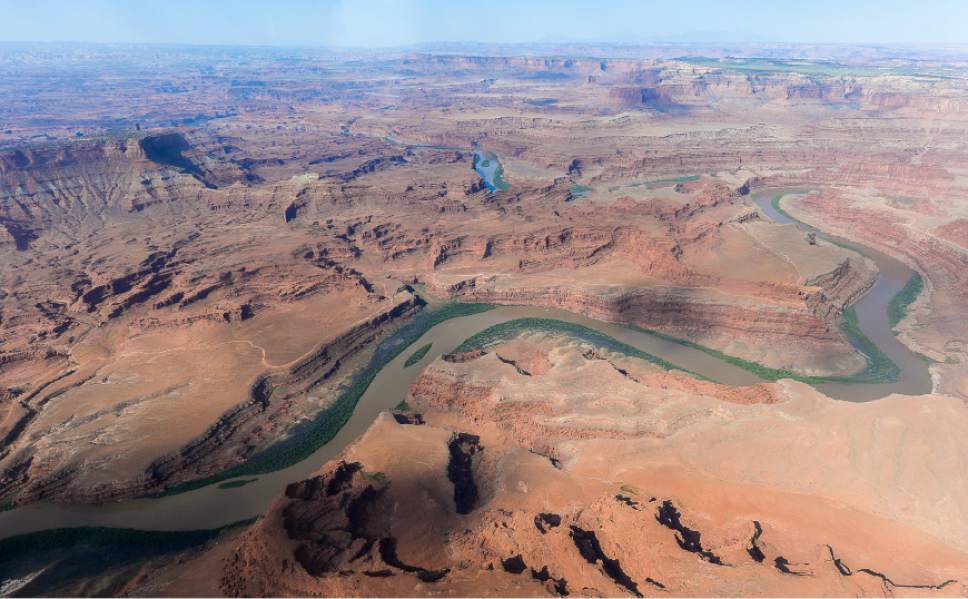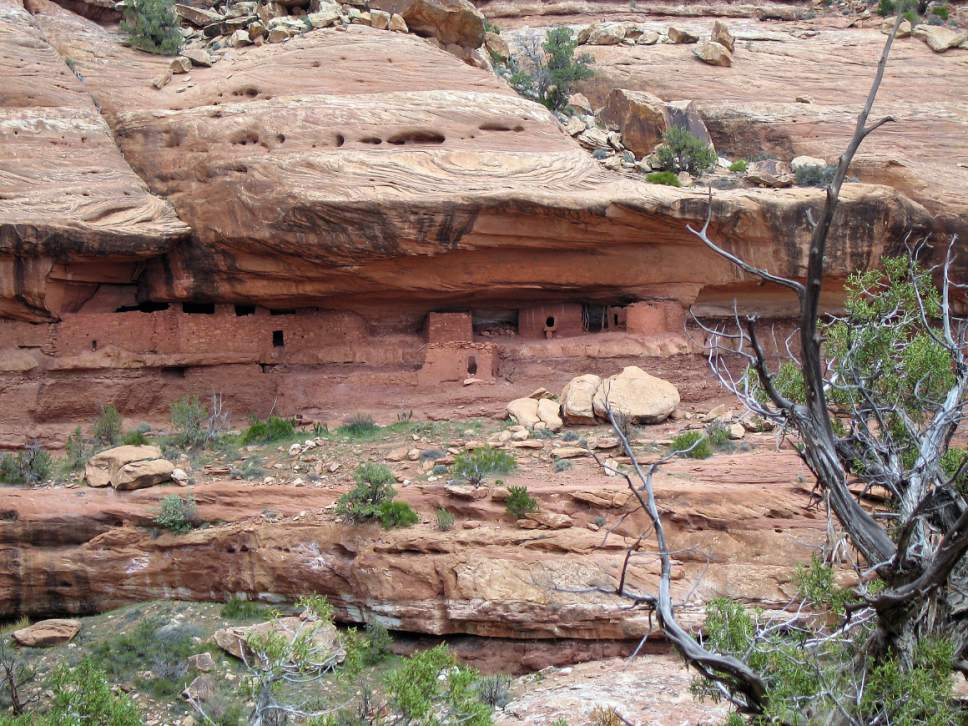This is an archived article that was published on sltrib.com in 2017, and information in the article may be outdated. It is provided only for personal research purposes and may not be reprinted.
Washington • At the end of his second term, then-President Barack Obama gratified a coalition of Western Native Americans by creating Bears Ears National Monument in southeastern Utah, 1.35 million acres of high desert punctuated by dramatic rock formations.
Now a tribal coalition, which considers many sites within Bears Ears sacred, fears the Trump administration will take the unprecedented step of stripping a national monument of its designation and leave their ancestral lands vulnerable.
"Our religion is very much tied to the land," said Carleton Bowekaty, a Zuni tribe councilman and co-chair of Bears Ears Inter-Tribal Coalition. The group's lobbying made the monument the first ever to be created at the behest of sovereign tribes.
"For many of my people our day starts with prayer, and it's not just prayer for themselves or their family; it's for the entire world and therefore for the Earth. … If we don't have a healthy land, we won't have a healthy people."
In their fight to retain the monument — named for a particularly striking pair of buttes — the tribes enjoy the support of environmentalists and religious environmentalists.
Shantha Ready Alonso, executive director of Washington, D.C.-based Creation Justice Ministries, said Native Americans shouldn't have to fight so hard for protections of their religious places.
"As Christians, we never question 'what if somebody might come and drill a hole in one of our cathedrals or claim domain over it or rip it down?' We are confident that people would respect the history, the culture and the sacredness of a space like that," she said. "But these tribes, they've had to explain and prove time and time again that they're worthy of protection. … We need to stand with them."
In recent weeks, hundreds of Mormons — invoking their own history at Bears Ears, their past persecutions and their responsibility to protect Native American religious rights — signed a petition asking congressional leaders and Interior Secretary Ryan Zinke to preserve Bears Ears as a monument.
"Our LDS faith guides us to respect the beliefs and religious practices of other cultures, especially those closest to us," reads the petition, signed mostly by Mormons from Utah, home to the headquarters of The Church of Jesus Christ of Latter-day Saints.
But many Utah politicians counter that Bears Ears' sacred sites can be protected without its national monument status. They call Obama's designation in late December a "land grab" that robbed Utahans of control over a large swath of a state already rich in national parks and monuments.
Even as they work to overturn Obama's action, they are mindful of the Native Americans' religious claims to the land. Days after President Donald Trump's inauguration, the entire Utah congressional delegation issued a joint statement on Bears Ears that called for an executive action to rescind monument status. It began with an invocation of tribal rights.
"To them, Bears Ears is more than a recreation destination, it is sacred ground rich in cultural and historical significance," the statement reads. "With its abundant natural resources — including wood to warm homes in the winter — many Native Americans depend on this land not only for spiritual nourishment, but also for their very survival."
The Republican-dominated Utah Legislature followed up with a resolution signed by Gov. Gary Herbert, urging Trump to rescind Bears Ears.
Like their federal counterparts, GOP lawmakers also take pains to acknowledge the tribes' religious connections to Bears Ears.
"Nobody is saying that sacred burial grounds should be disturbed or you should put a McDonald's drive-thru through them. That's not the point," said state Sen. Todd Weiler, R-Woods Cross. "The point is those other million-plus acres that aren't sacred areas."
And Weiler noted — as do many monument foes — that some Native Americans also consider its creation federal overreach.
No one should expect unanimity among native people, said Natasha Hale, a Navajo who works at the Grand Canyon Trust conservation group and advocates for the Bears Ears Inter-Tribal Coalition. "But the overwhelming majority support the monument."
The tribes in the Inter-Tribal Coalition — the Hopi, Navajo, Uintah and Ouray Ute, Ute Mountain Ute, and Zuni — don't want to give up what monument status affords them.
Each has a seat at the table on the commission that advises the federal managers of Bears Ears National Monument. The tribes had worked with Utah officials on a Public Lands Initiative that would have protected Bears Ears. But that state-centered endeavor never came to fruition, and offered them less of a role in the management of Bears Ears than monument status allows.
So they pushed for the monument and won.
"If you look historically at the interaction between Utah politicians and tribes, it's not a great history," Hale said. "I don't think that they like that the tribes have had a political win over them."







